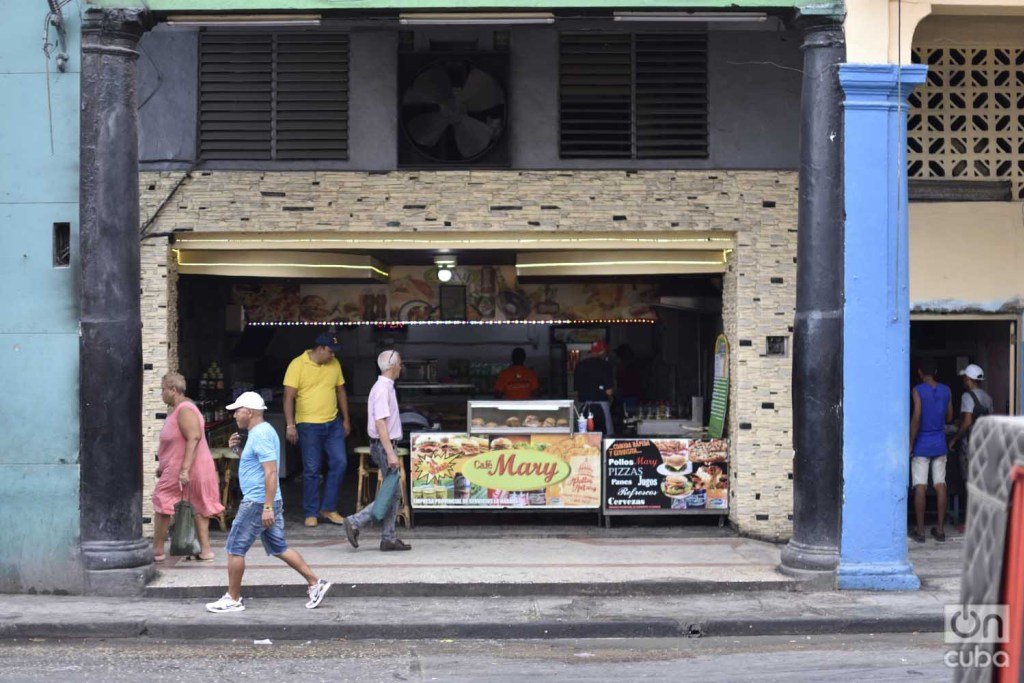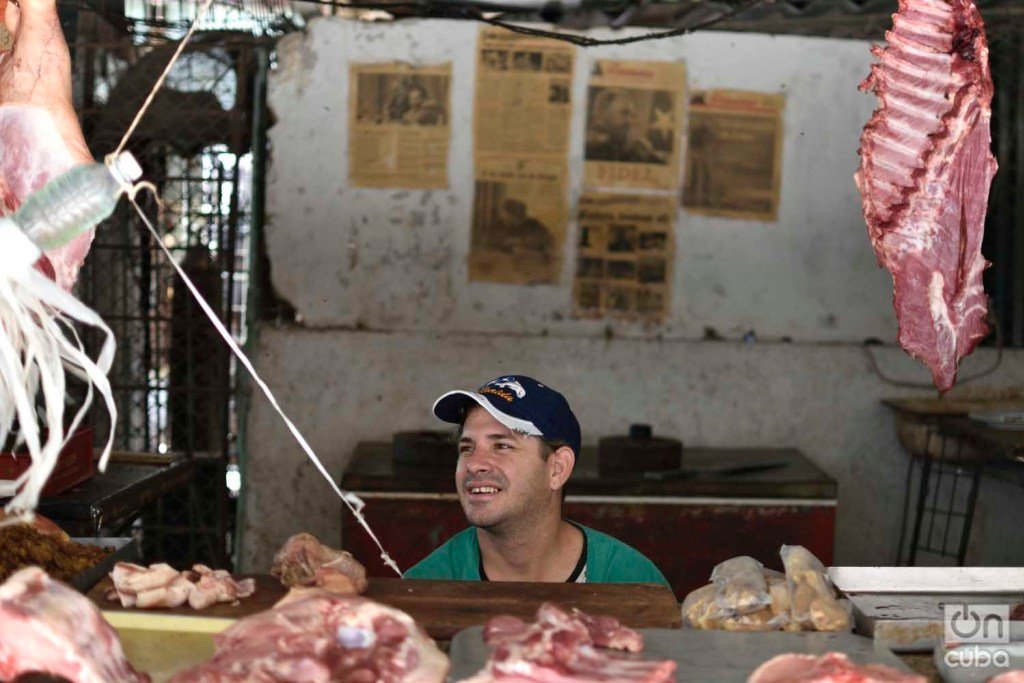In 2012, a group of Cuban economists (Omar Everleny Pérez Villanueva, Ricardo Torres Pérez, Pavel Vidal Alejandro, Armando Nova González, Juan Triana Cordoví and the author of this text), published a collective book entitled Cuba. Hacia una estrategia de desarrollo para los inicios del siglo XXI (Cuba. Towards a development strategy for the early 21st century). In that book, I wrote the last chapter entitled “Los problemas actuales de la economía cubana y las reformas necesarias” (The current problems of the Cuban economy and the necessary reforms). In seven years, little has changed in Cuba and, in fact, economic growth has slowed down and many of the problems analyzed in that text have worsened. That is why I think it appropriate to again address the issue of the necessary reforms, updating the analysis and addressing new issues from a different perspective.
The inefficiency of centralization
The inefficiency of excessive centralization can be verified in practice in the economic history of all countries that adopted the model of centrally directed economies. The adoption of directive figures without taking into account market conditions has led to distortions in prices and, consequently, in the allocation of resources. On the other hand, enterprises’ lack of autonomy to make their economic decisions, destroys entrepreneurship and economic initiative.
The experience of economic reforms in China and Vietnam has demonstrated the need to reserve central planning for macroeconomic conditions, so that a regulated but not state-controlled market can operate. There is a substantial difference between regulating a market and controlling it. Control measures often stifle the initiative and, in fact, end up restricting its activity, with which productive forces cannot be adequately deployed. The regulation, on the other hand, must point towards the creation of favorable conditions for the performance of a market in which its failures are minimized (formation of monopolistic structures or imperfect competition, environmental pollution, among others), economic growth is encouraged and adequate redistribution mechanisms are established, through the tax system, without discouraging entrepreneurial activity. This should lead to relinquishing rentier and extractive practices that, at present, characterize the Cuban State.

Autonomy in state enterprise and development of private and cooperative sectors
Although the “Economic and Social Policy Guidelines of the Party and the Revolution for 2016-2021” recognize the need to improve the activity of state-owned enterprises in line with a “greater autonomy, effectiveness and competitiveness,” very little progress has been made in that direction. The state enterprise must participate in the market, and function fully as an enterprise with the responsibility that the management of its finances and its daily operations implies. In that sense, it is necessary to eliminate supervision by branch ministries, senior business management organizations or territorial agencies and allow the enterprise to define the wages paid to its workers, and take the necessary measures to operate with greater efficiency and quality, whether in production or services. It is essential that business monopolies be eliminated and for state enterprises to be forced to compete with other state-owned enterprises, as well as with private enterprises and cooperatives in their sphere of activity. It is known that monopoly generates inefficiency and leads consumers to pay for it with high prices or rates and/or with a low quality of the goods or services consumed.
Under the current conditions of the Cuban economy, the development of the private and cooperative sectors is essential. Policies regarding both sectors have suffered from successive fluctuations that generate uncertainty about the government’s true commitment to promoting both activities. In the main documents of the economic policy adopted in the last two congresses of the Communist Party of Cuba (PCC), as well as in the new Constitution the option of the predominance of state property over other forms of ownership is made clear, but the convenience of the economy combining the various forms of ownership is recognized. This is a conservative formulation and should be reconsidered because the obstacles faced by the private and cooperative sectors end up slowing entrepreneurship and ultimately are a brake on economic activity and a restriction on the development of productive forces. Thus, we are facing the reality that the country’s productive forces cannot be fully deployed due to ideological considerations that are more suited to dogmas than to the rational understanding of the objective laws of the economy.
In the first place, it is a dogma to consider that the Cuban economy is “socialist.” In Anti-Dühring, Engels wrote:
“The proletariat takes into its hands State power and turns, first of all, the means of production into state ownership. But with this same act it destroys itself as a proletariat and destroys all difference and all class antagonism, and with it, the State as such.…”
and later added:
“When the State finally becomes an effective representative of the entire society, it will be superfluous in itself…. The State will not be abolished; it is extinguished.”
Therefore, as has been proven, we are very far from those circumstances. It seems it is utopian to think that the state may disappear. That possibility is so distant that it is more productive to think about how the State can be really socialist, because a socialist economy requires a socialist State. A true socialist State cannot be other than a fully democratic State in which it is really verified that power is in the hands of the people and the latter has the real mechanisms to exercise that power. A State in which it is recognized that a Party (whatever it may be) performs the function of “the leading force of society and of the State,” and that, to top it off, is not democratic in its internal activity, is far from being a democratic State. For sovereignty to really emanate from the people there must exist real mechanisms through which that sovereignty emanates and that clearly contradicts the formula according to which a party is above society, which characterizes the current Cuban Constitution.
Secondly, it is a dogma to consider that state ownership is “social of all the people.” The people have no way of exercising control over “their property.” If the alleged owner cannot exercise control over his alleged property, we are in the presence of a phenomenon of alienation typical of the “absence of property.”
What are the mechanisms so that the people, as the owners of the means of production, can exercise control over their management? There are no such mechanisms and as long as this situation is so, state ownership will not really be the “property of all the people.” This implies the need to create democratic mechanisms that allow society to exercise that function of control over the management of “its property.” Thus, if we consider that socialism is based on the predominance of “social” ownership over the means of production, in the absence of democracy and social control over the management of state property, it loses its connotation of social ownership and we are faced with the circumstance that the ruling group makes the decisions and does not respond for the management of what, in theory, is owned by “all the people.”
Thirdly, it is a dogma to consider that private property cannot play a positive role in the development of an economy that is oriented towards socialism. For this it is necessary to reconsider the very concept of socialism. If history has shown anything of what has been called “real socialism” it is that it was not imposed in the more developed capitalist economies, as Marx and Engels had predicted, but precisely in countries in which both theorists considered that the historical conditions for the transition from capitalism to socialism were not created.
This forecast corresponded to a logical vision, based on a certain historical determinism. But the establishment of a socialist system in countries such as Russia, China and others, led its leaders to try to skip the capitalist stage. That is to say, they sought to create a socialist system where capitalism had not developed and therefore, where the process of socialization of production that for Marx and Engels was produced in developed capitalism was not completed. Despite this, the world realities are very different today from those analyzed by the two German thinkers.

Capitalism has survived through its ability to adapt to the new realities, although its exploitative character, its inequitable character, its predatory and therefore unsustainable nature of the environment still persist. Meanwhile, “really existing” socialism did not, in practice, represent a viable alternative to that system. When the Civil War ended, Lenin understood that social relations cannot be forced at the whim of rulers based on subjective considerations and the so-called “War Communism” was replaced by the “New Economic Policy” (NEP). In the NEP, former private entrepreneurs were invited to run their old enterprises, markets were stimulated, mercantile and monetary relations were encouraged, the role of material incentives in boosting production were recognized and the country began to open up to the world. It was a stage of clear improvement of Soviet society’s wellbeing. And in that improvement of wellbeing, private property played a special role, which at that time did not cover industry but it did include agriculture and certain services. However, as is known, the NEP did not last as much as was necessary to boost prosperity and Stalinism’s dogmatic vision, which led to a “pseudo-socialization” of the means of production, based on terror, was imposed.
Socialism cannot be attained without achieving a sustained increase in society’s wellbeing. A poor economy can hardly be socialist because it will only be in a position to distribute poverty and that is a perspective that cannot lead to a sustainable social consensus over time. For this reason, it is necessary to unshackle mentalities and adopt the necessary measures to boost economic growth and development and this necessarily passes through what many people call liberating the productive forces, in the state as well as the private and cooperative sectors. In Cuba’s current conditions, both private enterprises and cooperatives, as well as state-owned enterprises with full autonomy, have immense potential to contribute to the development of the country and a truly democratic State can be the guarantor of greater social justice.

Deployment of the markets
The control exercised by the Cuban government over the functioning of the markets prevents them from complying with the function of efficiently assigning productive factors through the price system. Consequently, over the course of six decades a series of distortions in the price system have accumulated that have affected this allocation process.
Price distortions in Cuba are the result of a combination of several factors:
1) the imposition of prices by the State without considering the conditions of supply and demand,
2) the persistence of a market of rationed goods at subsidized prices and
3) distortions in production costs, due to the real inconvertibility of the Cuban peso and the nominal overvaluation of its exchange rate. All this has led to a disconnection of the Cuban economy from the world economy due to the lack of references for relative prices.
Consequently, until the 1990s, both prices and salaries were divorced from world market conditions. The disappearance of the USSR and the world socialist system produced a violent shock to the Cuban economy, which was exposed to a reintegration into world markets in very difficult conditions. The shortage of goods and services in the domestic market was generalized, the devaluation of the Cuban peso in underground markets skyrocketed without an overvalued exchange rate adjustment and a market of goods and services at dollarized prices started appearing while the income of the workers remained unchanged, causing a very serious crisis, suffered by all the families residing in the country. In general terms, this divorce between the income received by workers of the state sector and by pensioners and the cost of living has been a persistent situation in the last three decades, which has not been able to be corrected by the successive decreed wage increases, because they are still significantly lagging behind in terms of the real cost of living.
This essential adjustment can only be made through the market and this would mean deploying both the markets for goods and services as well as productive factors and this includes the labor market and the hitherto non-existent capital market. For this to happen, it is necessary to put an end to the current restrictions that limit the creation of private enterprises and cooperatives, as well as to create a regulatory framework that guarantees the establishment of conditions for a healthy competition and the creation of an adequate climate for entrepreneurship.

a) Deployment of markets for goods and services
The markets for goods and services maintain considerable rigidities. There is still a system of regulated distribution of products that was established in the 1960s to ensure an equal distribution that, while protecting people with lower incomes’ consumption, has also generated a series of distribution inefficiencies. Currently, the food basket distributed through the Ration Book does not guarantee a minimum of subsistence for Cubans. Recently, a series of products of regulated distribution and others under the category of “liberated under control,” which is another form of quantitative restriction at a price somewhat higher than that of “regulated” products, have been incorporated.
It would seem much more efficient to subsidize people than goods because everyone has access to subsidized goods, even those who don’t need them. However, if the shortage of goods, even those of basic need, for the consumption of the population predominates in an economy, the economic policy should be oriented to stimulate the growth of production and dismantle everything that opposes it.
There are large potential reserves in the private and cooperative sectors for the development of productions of goods and services needed by the population. Six decades of an almost completely nationalized economy are a clear demonstration of the inability of the State to ensure the supply of goods and services the population requires to meet their needs, so that what has been theoretically considered as the fundamental economic law of socialism, that would be meeting the growing social needs, has not been fulfilled.
There is a strong consensus about the need for the establishment of wholesale markets for those who offer products in retail markets. This would contribute, first, to the availability of raw materials and intermediate goods that would be used in the manufacture of final goods, as well as to the reduction of prices of many goods that, without transformation, are offered in gastronomic establishments.
Until now, the Cuban State has maintained its monopoly over retail commerce in which there is neither the necessary assortment nor sufficient availability, especially of that that must be imported but whose prices are maintained unrelated to the purchasing power of the population through work. The State’s shortage of foreign currencies affects the possibilities of ensuring the assortment of imported consumer goods if the State is the only one that can operate in retail commerce, while the discouragement of production and the difficulties to obtain raw materials are factors that limit the possibilities of replacing imports with national production.
If the opening of retail and private cooperative establishments is allowed, it will be their private or collective owners who will be in charge of assuring the assortments and that will be their priority and the success or failure of their business will ensure their survival as enterprises. None of this happens when the State monopolizes retail distribution.
The development of the markets for goods and services would contribute to the establishment of market prices that would give the necessary signals for the allocation of resources. The prices formed in the market would take into account production costs and the correlation between supply and demand and, at the same time, would offer a guide to producers about what, how much, how and with what quality to produce.

b) Deployment of the labor market
Although state employment has been declining in absolute terms in recent years, from 3.46 million workers in 2015 to 3.067 million in 2018 (ONEI, 2019), it still constitutes 68.4% of the employed labor force. These workers are located in the so-called budgeted sector and in the State business sector or joint ventures with State participation because they receive their salaries through a State employment agency. On the other hand, in the mentioned period, the total number of those employed in the economy has dropped by 5%. The total number of beneficiaries of social security and social assistance currently stands at 1.67 million people for pensioners and 181,355 beneficiaries of social assistance, which together represents 41.3% of total employees in the national economy. This is, in itself, very serious, since for every pensioner or beneficiary of social assistance there are almost two active workers. This situation is even more serious if we consider that the level of income of workers and, to a much greater extent, of pensioners, does not ensure meeting basic economic needs. This reality persists even in the case of recent salary increases that benefited the budgeted sector.
Although there has been a certain transfer of state workers to the so-called “non-state forms” of employment, it is known that in the state sector there is an over-employment, that is, there are more people employed than are really needed if criteria of economic rationality were applied. If a deep adjustment were made to eliminate a whole series of unnecessary activities that inflate the state bureaucracy, many of these workers would be unemployed and there would be a very serious social problem.
However, if the immense restrictions that currently exist for self-employment, for the formation of cooperatives and especially for the formation of private enterprises were eliminated, an emerging private and cooperative sector could be formed in the production of goods and services that could absorb a considerable part of that work force that is currently employed by the State with salaries that are unable to meet basic needs. In this way, the resources currently used to pay their salaries could be used to improve the wages of those who would be working in a “rationalized” state sector, with a size appropriate to the real needs of a small economy.
The Cuban labor market is limited by excessive rigidities, among which should be noted: a) those that prevent the autonomy of state-owned enterprises in the establishment of their workers’ salaries because they are centrally fixed by the State; b) those that prevent the establishment of private enterprises and cooperatives that would give greater flexibility to the labor market and c) those that establish the State monopoly in the hiring of workers for joint ventures or foreign companies, through an agency that charges the foreign company a far superior value to what it then pays workers for the use of the labor force.
The deployment of the labor market would imply eliminating these rigidities that are preventing the market from playing a decisive role in the formation of relative prices, both of goods and services as well as for the labor force, thus facilitating the connection of the domestic economy with the international economy.

c) Creation of a capital market
One of the main problems of the Cuban economy is the low domestic savings rate, which translates into a very low investment rate. Fixed gross investment between 2014 and 2018 has been, on average, 14.9% of the GDP (1), which is considerably insufficient if one takes into account that the economies that show the greatest dynamism in the world and have progressed significantly in their development process reach figures higher than 30% and, in some cases, reach about 50%. To raise the investment rate and not to do so at the cost of reducing the consumption rate, it is necessary to attract capital from the rest of the world, that is, encourage foreign direct investment (FDI).
Although Cuba has enacted two FDI laws (Law 77 of 1995 and Law 118 of 2014) granting tax facilities to attract foreign capital, it has not flowed to the island to the extent required for economic development. The Cuban National Bureau of Statistics and Information (ONEI) for many years has not published the Capital and Financial Account of the Balance of Payments in the Statistical Yearbook, in addition reporting on the Current Account with a delay of two years. However, considering the information offered by the Financial Times fDi Markets database, between 2014 and 2018, the cumulative announced FDI has been only 2.458.4 billion dollars (2), which is lower than what the Cuban government considered was necessary to receive annually (2.5 billion USD) and almost half of that value went to the hotel sector. However, both agriculture and manufacturing and diverse service sectors require FDI to improve their productivity and competitiveness.
FDI in Cuba faces various obstacles, both external and internal. The main external obstacle is the hostile activity of the U.S. government, expressed in economic sanctions, which have been intensified by the Donald Trump government and that certainly has an impact on discouraging the interest of potential investors in the country. Beyond the successive votes in the UN to denounce these sanctions as illegal, there is little that can be done because they depend on the political will of the U.S. government. However, internal obstacles could and should be removed.
Among the internal obstacles the following could be mentioned:
a) the Cuban government has a highly discretionary mechanism for the approval of FDI projects, which, in turn, is slow in the approval process,
b) investors must convert their capital into convertible pesos (CUC), which are not fully convertible, because profits can only be remitted in hard currencies after obtaining a liquidity certificate,
c) the domestic market is not attractive enough for investors, due to the population’s low level of available income and the persistent restrictions due to excessive state control over it,
d) although Law 118 does not expressly prohibit the investment of capital by Cubans residing abroad (something that both China and Vietnam allowed since the first years of their respective reforms), in practice no project submitted by Cubans residing abroad has been approved, although they could constitute a considerable potential for transferring external savings to the island, and
e) Cuba’s economic policy is not characterized for the creation of a stable and attractive business development climate, due to its systematic fluctuations, often related to situations that are not necessarily economic.
Although there is no statistical evidence, it is known that a considerable part of the remittances received by Cuban families have gone into the establishment of self-employment economic activities. In many cases, the recipients of these remittances to invest manage businesses whose real owners are family members residing abroad, which is neither transparent nor adequate from the legal point of view, but is the result of opacity and the lack of transparency that characterizes the legislation for self-employment and the de facto restrictions that define the process of government authorization of FDI.
Under current conditions, it is very difficult that with the majority of Cuban workers’ present levels of available income, the gross domestic savings that can be channeled to investment can be increased. Cubans residing on the island who are in economic conditions to invest are those who can carry out work abroad for which they receive income in hard or convertible currencies, who carry out private economic activities (farmers, artists, hoteliers, restaurant owners, etc.) and charge market rates, or those who receive remittances from abroad. However, the experience of Vietnam, through the “equitable” process, showed that it is possible to attract capital for the financing of state-owned enterprises by placing them in the capital market and making their workers co-owners of a part of these enterprises by giving them part of their shares.
For this, it is necessary to create the conditions for the operation of a capital market that operates transparently and with the levels of regulation that characterize contemporary stock markets. The experience of creating capital markets in China and Vietnam should be taken into account when considering the creation of a capital market in Cuba.

Creation of an adequate institutional climate for business development
A nation’s prosperity depends on the prosperity of its economy. It is not possible to build a prosperous society if economic development is not achieved and this depends on growth. Growth and development do not constitute an identity, but development requires growth as a necessary but not sufficient condition. To achieve sustained economic growth that leads to economic and social development, it is essential to create an adequate institutional climate.
This institutional climate requires, first of all, the creation of a Social State of Law. The rule of law must be the norm based on which all economic and social, and of course, also political, activity is conformed.
As Rodrik (2007: 222-223) states, the countries that show a successful economic development are those that have managed to establish a “clearly defined system of property rights, a regulatory apparatus that curbs the worst forms of fraud, the anti-competitive performance and moral risk; a moderately cohesive society that shows features of social trust and cooperation; political and social institutions that mitigate risk and manage social conflicts; a rule of law and a clean government….” As I stated in 2012 when I wrote that chapter, Cuba does not comply with all the above-mentioned elements.
The excessive control of the State is based on a system of monopolies that generates inefficiencies and limits the competitive environment. Property rights are not duly guaranteed in the country’s legislative framework, not even in the new Constitution, in which when private property is discussed is it a “complementary” way to the so-called “property of all the people.” The regulatory framework is characterized by allowing what can be done and not by allowing everything that is not prohibited and is characterized by legal gaps that allow opportunistic interventions by the State.
Unfortunately, the 2019 Constitution has debts with the necessary institutional transformations to create a necessary climate for business development, which is why for this to be achieved, it should undergo substantial modifications.
Judicial and arbitral institutions are required that do not depend on the Party-State system still in force but are really independent to generate the necessary confidence in the economic actors. This would generate the necessary transparency in disputes between economic actors and the State or its institutions and between economic actors.
On the other hand, Cuba requires a new body of laws that establish the clear and transparent rules required for the markets to function properly, even under conditions of a necessary state regulation. Among the most important, the following could be mentioned:
a) adoption of an Enterprise Law that regulates the establishment, management and organization of the various types of enterprises, recognizing all forms of ownership the same rights and duties;
b) a new Trade Code that should create the conditions for the appearance of new mercantile enterprises and regulate the conditions under which differences between enterprises and between them and the State are settled;
c) a new Labor Code that should recognize the internationally recognized rights and duties of workers, employers and forms of free association of both social groups to defend their interests, and that should liberalize the labor market, the free establishment and with market criteria of salary levels, starting with a minimum wage for activities of less complexity, and ensuring the conditions for direct hiring of workers and employers, whatever the form of ownership;
d) a new Law of the Progressive Tax System that establishes the mechanisms for the expansion of the tax base in society, not to sustain an inflated bureaucracy, but to ensure the conditions for sustaining an expansive social policy;
e) a new Currency Law, which should establish the mechanisms that define a unified monetary and exchange system, which allows the use of a currency that really fulfills money functions and that serves for any economic transaction within the national territory; and,
f) a new Housing Law, which allows the creation of a transparent real estate market managed by specialized entities that facilitate the processes of buying-selling and leasing, establishing the rights and duties of both owners and tenants.

By way of a summary
The Cuban economy and society are at a stage where the need to face structural changes is urgent. The Cuban political leadership has defined the changes they have made so far and those that are included in the “Guidelines” and in the “Conceptualization of the Cuban Economic and Social Model of Socialist Development” as a process aimed at greater productive efficiency. However, the measures adopted in this context have suffered the fluctuations determined by various situations of conflicts in the decision-making levels of economic policy, as well as the relations between Cuba and the United States.
More than a semantic issue it is about the scope of the measures that are taken. These ideas are not intended to exhaust the analysis but to be part of a serious academic and political debate, unprejudiced and free, that leads to the promotion of economic and social development, the improvement of the population’s standard of living and the country’s modernization. For this, it is necessary to break away from ideological dogmas, open the way to a new mentality that allows us to creatively address the necessary measures for these times, with the aim of creating the conditions for the improvement of society’s wellbeing.
Notes:
(1) Author’s calculations based on ONEI (2019) Statistical Yearbook 2018, 2019 Edition. http://www.one.cu
(2) Calculations based on fDi Markets (2019)
References:
Engels, Friedrich (1878, revised and completed 1894) Anti-Dühring. Pueblo y Educación publishers, Cuban Book Institute, 1975 Edition.
Financial Times (2019) fDi Markets Database.
Rodrik, Dani (2007) Una economía, muchas recetas. La globalización, las instituciones y el crecimiento económico. Economic Culture Fund, Mexico.
ONEI (2019) Statistical Yearbook of Cuba 2018, 2019 Edition. http://www.one.cu









